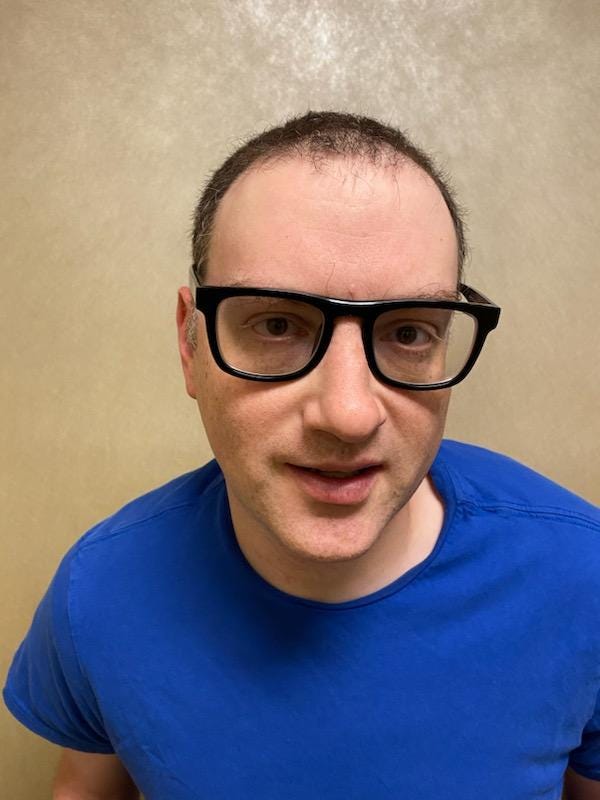2024 Update: The most read article on the Jewish Disability Inclusion News (please subscribe if you haven’t yet), last year was this one about fasting on Yom Kippur. I feel that it is an important topic, even if it is only a discussion starter or, more importantly, a reason to share about the importance of people listening to their doctor and rabbi in that order about fasting on Yom Kippur. I am neither a rabbi nor a doctor, but this is a very important issue to me; one of which many people are unaware. It affects many of the same people each year, but also, many new people who find themselves either temporarily with an illness or with a newly diagnosed chronic illness. Therefore, I feel it is important to post this informative discussion-provoking article this year as well. As you will see below, it is sometimes a Mitzvah to eat.
When I was growing up in my childhood community, it was very common this time of year to wish everyone who was in our large Jewish community a safe, meaningful, and easy fast as we approached Yom Kippur. This remains a common practice in many communities worldwide.
I would like to boldy propose that those of us who have adhered to the tradition of assuming everyone is fasting may have misjudged the situation. While fasting is indeed central to the holiest days on the Jewish calendar, focusing solely on this aspect in our well-wishes for others overlooks the essence of the holiday. We often make assumptions about the personal medical circumstances of others well enough, which can lead us to miss the true meaning of the celebration altogether.
We separate when we should be together. We hurt, when we mean to wish well. We assume when assumption alienates. On the very day that we approach the Kol Nidre service, when we invite in all Jews to the synagogue to repent, we miss every other essential aspects of the day by solely focusing on fasting. We may be hurting while our intention is to wish well.
As someone who was hospitalized last Yom Kippur and was told it was in fact an avara or sin for me to fast on that very important day there are many people who for health reasons cannot, should not, and will not be fasting. There are different ways not to fast on Yom Kippur and a long list of both chronic, and (hopefully) singular situations that make it necessary not to fast. There are also different ways to break a fast on Yom Kippur. Therefore, ask a doctor and a Rabbi how you should proceed, in that order. (I suggest giving permission for them to discuss the situation with each other.)
On the Chabad website there is a prayer in English I wish to share here:
In an ancient Machzor (High Holiday prayerbook), it is suggested for an ill person to recite the following prayer before partaking of food on Yom Kippur:
Behold I am prepared to fulfill the mitzvah of eating and drinking on Yom Kippur, as You have written in Your Torah: "You shall observe My statutes and My ordinances, which a man shall do and live by them. I am the L-rd." In the merit of fulfilling this mitzvah, seal me, and all the ill of Your nation Israel, for a complete recovery. May I merit next Yom Kippur to once again fulfill [the mitzvah of] "you shall afflict yourselves [on Yom Kippur]." May this be Your will. Amen.
May we all merit a safe and meaningful Yom Kippur.
Diagnosed with CP, Jason Lieberman is a lifetime disability advocate. He’s part of the Jewish Disability Inclusion News Advisory Board. Jason is a sought-after speaker in the US & abroad, mostly on Judaism & disability. He and his wife and son live in NYC.





From Rabbi Michael Levy, JDIN Advisory Board Member:
WE should not hesitate to wish people a meaningful fast.
Jason comments,
“There are many people who for health reasons cannot, should not, and will not be fasting.”
We have no idea who these people are. Some of them have hidden disabilities or chronic health problems that even their close relatives may not know about.
Leviticus commands “And you shall live by them.” This means that a person who is in any danger of dying because of s/he fasts IS OBLIGATED NOT to fast. Thus, by not fasting, s/he is fulfilling the commandment “and you shall live by them.”
There is a story (I believe true) about Jews during a cholera epidemic in Europe. People were already fainting at Kol Nidre when the fast had just begun. Some people may have died overnight.
The rabbi COMMANDED THE ENTIRE COMMUNITY after Musaf to break their fast. Cholera dehydrates yu.
Nobody would break their fast.
The rabbi himself then consulted his two assistants. They brought out wine and cake.
The rabbi turned to the congregation:
“For my entire adult life I afsted on Yom Kippur. Now, that all may live, I and my assistants WILL BE THE FIRST to stop fasting.
He recited Kiddush, drank the wine, and ate some cake. His assistants joined him.
Everybody ate….ate and cried.
Anyone who has any doubt ABOUT FASTING SHOULD CONSULT HIS/HER RABBI, WHILE THERE IS STILL TIME. The rabbi may request a medical opinion.
We are all united on Yom Kippur, regardless of how we fulfill its precepts. May God grant a year in which His Children remain united with and committed to each other.
We love your perspective, Carey--thank you for sharing!